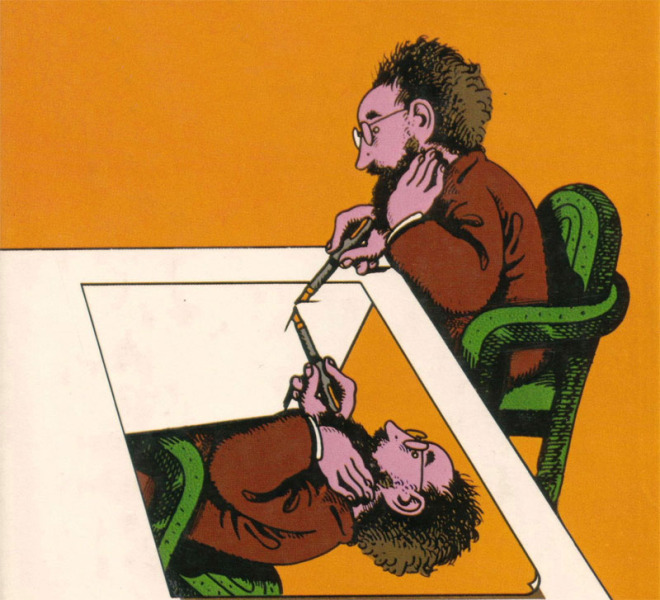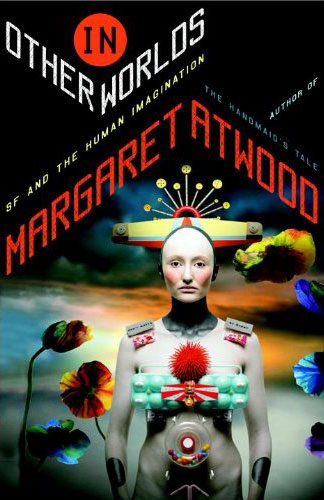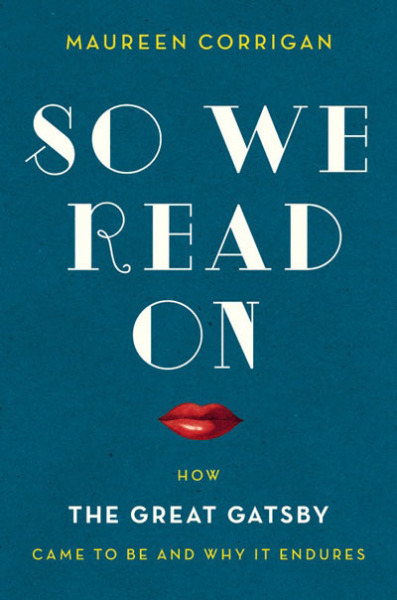
So We Read On: How The Great Gatsby Came to Be and Why It Endures by Maureen Corrigan
Like most, my first experience with F. Scott Fitzgerald’s The Great Gatsby was in college, and at the time I felt it to be a perfect display of the virtues of brevity. I had a heavy reading schedule. But re-reading it and reading Maureen Corrigan’s So We Read On was a revelation. Clearly the callow, over-stressed college kid was not the ideal reader for Fitzgerald’s incarnation of The Great American Novel. Corrigan’s book explores both the themes and the creation of the novel, looks at its reception in the past (underwhelming; first editions were remaindered!) and its place in the present. You get a wonderful look at the literary times and Fitzgerald’s troubled life, sans excessive exploration of Fitzgerald’s own excesses. Corrigan writes with a light touch about heavyweight literature, and preps you to be the perfect re-reader of a legitimate masterpiece.
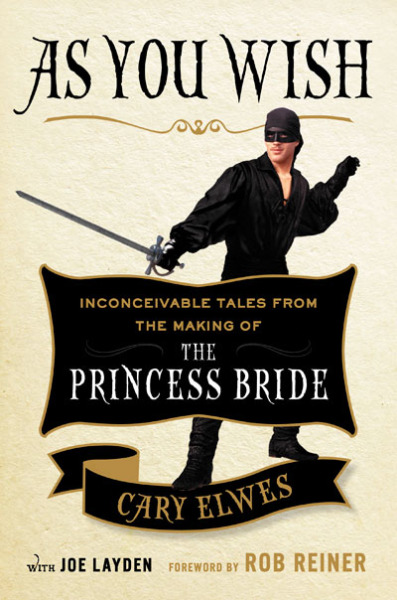
As You Wish: Inconceivable Tales from the Making of The Princess Bride by Cary Elwes
If re-reading is an exercise in recursion, here’s a book to make M. C. Escher dizzy. Cary Elwes starred as Westley in Rob Reiner’s movie adaptation of William Goldman’s novel, The Princess Bride. The book upon which the movie is based is presented as “The good parts version,” abridged by William Goldman, of “S. Morgenstern’s Classic Tale of True Love and High adventure.” “Simon Morgenstern” was both a pseudonym and creation of Goldman. The movie took that conceit and began with a grandfather (Peter Falk) reading (and “abridging”) Morgenstern’s novel to his grandson (Fred Savage). The story that unfolds on screen with Westley and company is essentially a visualization of the grandson’s reading experience.
Elwes here tells gentle, funny, insightful stories about how the movie came to be. Both Elwes and Reiner had read (and re-read) Goldman’s original novel as children. Since Goldman was a legendary writer, there were many attempts to bring his book to the screen. The book itself became notorious as being un-filmable, until Reiner pulled it off. Even then, only in hindsight – and after repeated re-viewing, did the charm become apparent. Elwes writes his book in the manner of the movie and reading this will transform your next viewing or reading of the original book, which itself is all about re-reading. In this case, however, Goldman and Reiner and Elwes have crafted a whole of “good parts.”
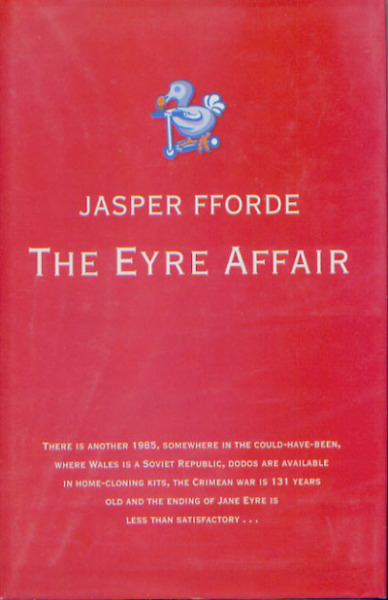
The Eyre Affair by Jasper Fforde
Thursday Next is a literary detective on the trail of Acheron Hades, a criminal mastermind who is stealing characters from original manuscripts and changing every book for every reader in the process. Jasper Fforde’s debut novel describes a book world in which reading experiences are equivalent to actual experiences, which to many readers is in fact the case. The novel is a spectacular ode to re-reading, as Thursday Next finds herself inside Jane Eyre in pursuit of heinous villains and outside, in a Great Britain of 1985 that’s practically a police state, looking for a boyfriend. Fforde is witty, intelligent and fun to read. Thursday has been doing a lot of crime solving; in later installments she is forced to deal with the fictionalized version of herself. Fforde’s latest Thursday Next book is The Woman Who Died A Lot.
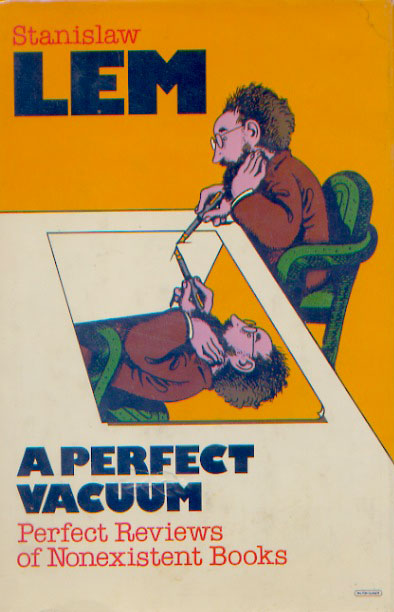
A Perfect Vacuum by Stanislaw Lem
In A Perfect Vacuum, Stanislaw Lem makes good on the promise in Borges’ “Pierre Menard, Author of the Quixote,” by offering readers a collection of what he describes as “perfect reviews of non-existent books.” Not surprisingly, the first book he reviews is A Perfect Vacuum, but not exactly the copy we get. He gives his own book a rather poor review, suggesting that portions are simply elaborate literary jokes, while other parts are the work of someone too lazy to write a novel. It’s the perfect introduction of Lem’s dry and hilarious sense of humor, and the reviews that follow are perfect for inspiring readers to go back and re-read some of the text that inform this book. Lem was an early supporter of Philip K. Dick, who made a lot of enemies in the science fiction world with his essay “Science Fiction, A Hopeless Case – With Exceptions” one of these being Dick. So expect that reviews of “Sexplosion” and “Being, Inc” will bring Dick’s best work to mind.
But there’s a lot here beyond SF. Lem reviews “Les Robinsonades,” a philosophical essay on Robinson Crusoe taken to an absurd level. Shockingly, you’ll be breaking out Hamlet when you read his review of “Gruppenführer Louis XVI,” an utterly brilliant riff in which an addled SS officer succeeds, with the help of stolen Nazi gold, in re-creating the French monarchy in the remote Amazon jungle. Lem also foresaw the self-publishing revolution in “Pericalypsis,” a proposal to pay writers NOT to write books. Because we are buried beneath our own intellectual trash, the writer being reviewed says, the Apocalypse has come and gone, “..only it went unnoticed in the general haste.” Just look around; is he wrong?
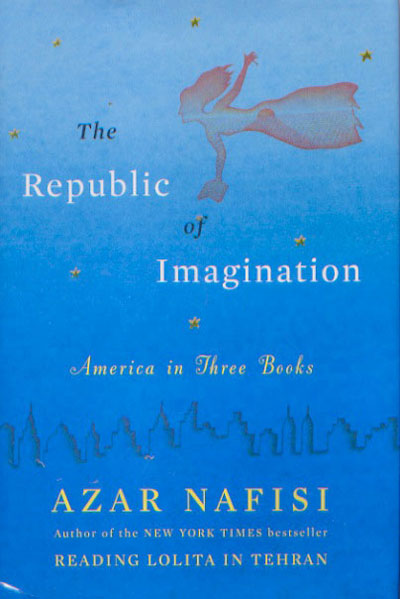
The Republic of Imagination: America in Three Books by Azar Nafisi
Azar Nafisi, the reigning queen of re-reading for her book Reading Lolita in Tehran, describes the state in which all readers reside with The Republic of Imagination: America in Three Books. Originally conceived as a critical look at Mark Twain’s classic Huck Finn, and then as a look at too many books to fit into one, Nafisi punts most of the literary criticism to offer a passionate, rabble-rousing call to arms for readers.
The book’s introduction should be required reading in America. Nafisi is no stranger to dictatorships that want to control what their citizens read, and she pulls off a polemic that is a pure pleasure. She knows how to put an intimate and personal touch on the reading experience, and then goes forth and tackles three American classics; Huck Finn, Babbitt, and The Heart Is a Lonely Hunter, with a James Baldwin epilogue. Through her explorations of the works themselves Nafisi weaves personal stories that are compelling and pertinent. Her examination of Babbitt offers a particularly precise and engaging look at why a so-called “liberal” education is necessary in any working democracy. She also opens up all three books in a manner that will have you searching the shelves of your local independent bookstore (not an online giant, mind you) for the titles she mentions, and more. Re-reading with Azar Nafisi borders on a religious experience.
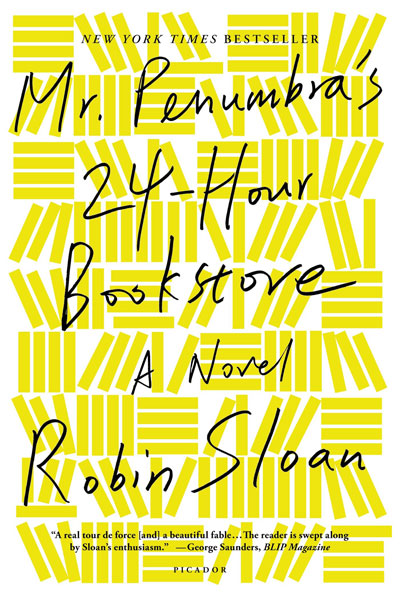
Mr Penumbra’s 24-Hour Bookstore by Robin Sloane
San Francisco has a heart made of books and bookstores. It took a high-tech rebel by the name of Robin Sloane to let us in on the secret and his novel, Mr Penumbra’s 24-Hour Bookstore, offers characters you might know (a one-time web designer, a currently employed techno-geek, oddballs and art mavens) and visions you’d hope to discover. Clay Jannon (the out of work web designer) finds himself working at a mysterious 24-hour bookstore with not as much business as one would suspect is required to keep the place open 24 hours a day. Readers here will find mystery, humor, and all the arcana you would expect at such an establishment. Moreover, you’ll find a novel where the plot hinges on a book, and re-reading is a particularly important plot point. Mr Penumbra’s 24-Hour Bookstore plays with reality in a way that makes the everyday world seem like some sort of science-fiction conspiracy theory brought to life.
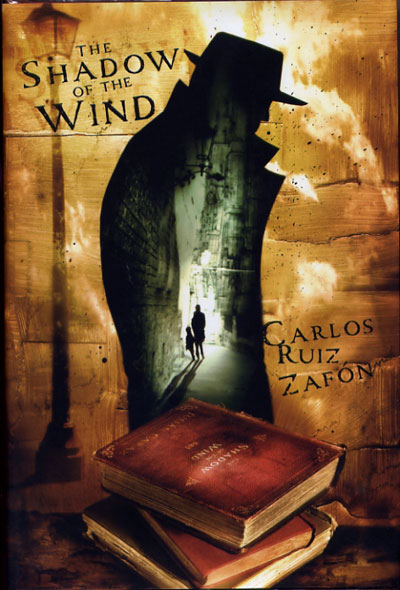
The Shadow of the Wind by Carlos Ruiz Zafón
Daniel Sempere’s mother has died – and he has forgotten her face. To help, his father takes him to the Cemetery of Forgotten Books, an enormous underground library in Barcelona, where Daniel is permitted to check out a volume. He selects an adventure, The Shadow of the Wind by one Julián Carax, and falls in literary love with the novel. Alas, someone, or something is trying to destroy all of the author’s novels.
Zafón crafts a lovely literary underworld, a gorgeously detailed Barcelona that may or may not have existed, or exist now. And in the process, he elicits the joys of reading and re-reading while crafting a novel in which both play an integral part in the plot. Romance and adventure in a world of used books turn this novel into a true hymn to reading. Keep an eye out for the limited edition from Subterranean Press, suitable for shelving in the Cemetery of Forgotten Books
What really sets The Shadow of the Wind apart are the sequels, The Angel’s Game and Prisoner of Heaven, each of which looks at similar and successive events in the same time, and some of the same events from a different perspective. As you read each book, your inclination to go back and re-read the others, and your pleasure in doing so, is increased.
